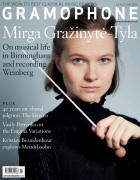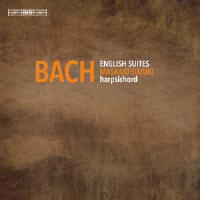Texte paru dans: / Appeared in: |
|
|
Outil de traduction (Très approximatif) |
|
|
Reviewer:
Jonathan Freeman-Attwood Viewing the English Suites as a kind of laboratory of experiment in style management by a young composer striding forth, combining unabashed extroversion with unwieldy prolixity, is what has undoubtedly led to their relatively recent sympathetic treatment. Masaaki Suzuki’s new account sits alongside a number of seriously good readings from the last few years including Ketil Haugsand’s exceptionally richly coloured recording (Simax, 9/13). One suspects that the indigenous ‘l’art de toucher le clavecin’ is afforded more opportunity in these large canvases – the framing suites are half an hour each – than in almost all other Bach. Suzuki, as we’ve come to expect in all his Bach projects, takes an exacting view of the music in terms of how the composer’s voice can be most directly and effectively communicated without artifice. The logic and pacing of the preludes are balanced by Willem Kroesbergen’s (after Ruckers) warmly voiced instrument, which allows Suzuki to trumpet the bold rhythmic gestures of the courantes and gigues alongside his internalising of Bach’s most personal selection of sarabandes. Particularly affectionately delivered are Suzuki’s allemandes: sweet, gracious and never cloying. There’s less of the poetic placement, timing and ambition of Haugsand’s spontaneous and varied essays but, instead, a consistency of approach which reassures us of the incremental merits of this mixed collection. If there is one attribute that draws me to Suzuki’s distinctive outlook, it’s the attention he gives to the tenderness of intersecting lines. While Bach’s early counterpoint can occasionally obfuscate melodic direction, Suzuki calculates the means of illuminating the way through patience and skilful textural control. The Courante of the G minor Suite is a case in point, as is the quiet nobility of the F major Allemande or the infusion of unalloyed pathos in the E minor Sarabande. That said, there is always an equally uplifting and visceral energy to balance the reflective movements. The D minor Prelude can easily drown in its own juices but here it swings for all of its eight glorious minutes. Such levels of finely honed judgement, drawn from Suzuki’s rich experience and deeply considered musicianship, never fail to make an impression on listeners. |
|




